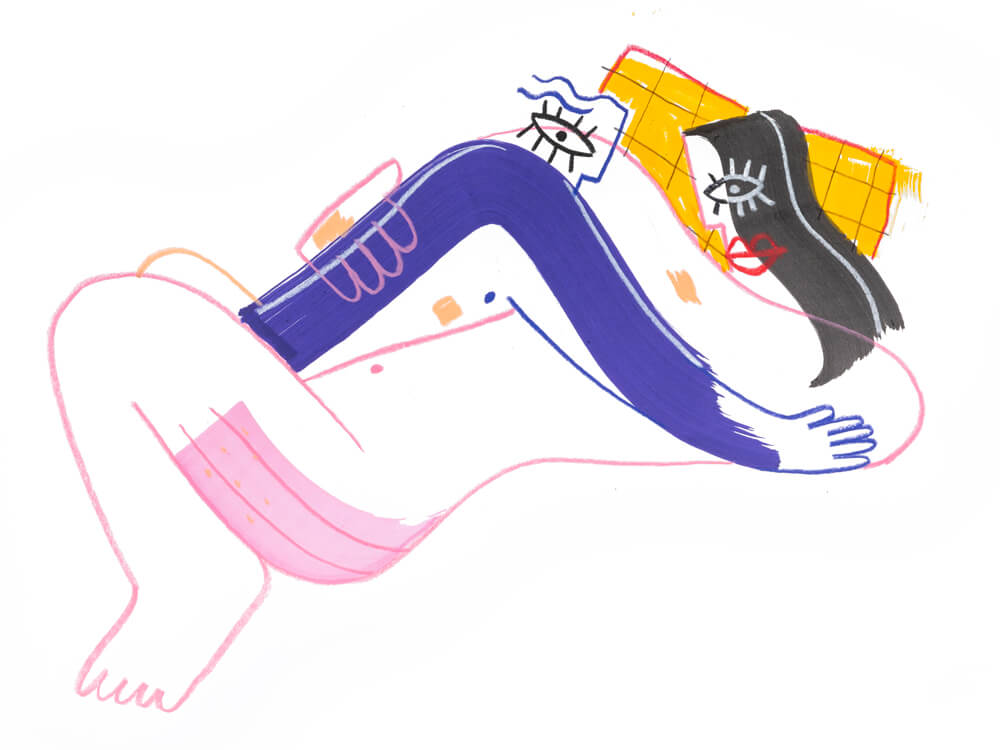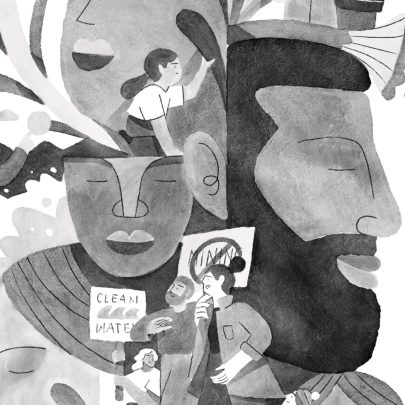Mar 12, 2020 Society
Consent is a necessary but not sufficient basis for good sex, writes Metro columnist Madeleine Holden.
Lisa, a 30-year-old writer living in Auckland, recalls a difficult sexual experience that took place when she was 18. “I went home with somebody I met in a bar, and we had pretty average drunk sex,” she says. “Then I woke up in the morning, and he wanted to have sex again.” Lisa (not her real name) remembers giving non-verbal cues that she wasn’t interested — pretending to be asleep while he touched her, rolling away — before telling him expressly that she was hung-over and feeling too sick to have sex. “He said, ‘That’s okay, you can just lie there.’ So then I just let him have sex with me, and left.”
Lisa’s experience is as common as it is difficult to talk about: sex that falls in the space between coercive and merely unenjoyable, where labels like “rape” or “sexual assault” feel too strong, but where “bad sex” — the way you might describe sex that was simply boring or embarrassing — feels minimising. Lisa says that morning “wasn’t this awful, damaging experience”, but that it was still “quite gross”, and she found herself thinking about the incident often. “It occurred to me years later,” she says, “that there’s something quite messed-up about how that person conceptualised sex.”
This is the bad-sex grey zone: a liminal space falling short of rape where, as Lisa puts it, “that kind of disregard is so common that it’s uneventful,” especially for women sleeping with men. For example, a man badgers a woman for sex until she eventually tires and submits to a sexual encounter she doesn’t want, or he persuades his drunk (but not blacked-out drunk) girlfriend to indulge a fantasy she wouldn’t ordinarily be comfortable with, or ignores the non-verbal cues that should make their partner’s discomfort, pain or simple lack of interest obvious.
The most high-profile example of the bad-sex grey zone is the encounter between Aziz Ansari and an anonymous woman known to the world as Grace, who told babe.net in 2018 how he pestered her to touch his penis and perform oral sex. “I know I was physically giving off cues that I wasn’t interested,” she said. “I don’t think that was noticed at all, or if it was, it was ignored.” Grace compares Ansari’s sexual mannerisms to those of a “horny, rough, entitled 18-year-old” and describes the night as “violating” and “painful”.
Because the encounter was reported at the height of the #MeToo movement, and because, after some equivocation, Grace eventually decided the encounter amounted to “sexual assault”, dozens of commentators decried the report as evidence that the #MeToo movement had “gone too far”. New York Times
columnist Bari Weiss diagnosed it as just “bad sex”.
That sex is often so bad that women leave encounters crying and feeling confused, grossed out and empty is worth talking about, but it’s difficult to do so freely and honestly within the punitive framework of the criminal justice system, where sex is understood in binary terms — consented to or not; sexual assault or not — and in which people are deemed either criminal or innocent. There’s little leeway to discuss sex that’s harmful, unethical and even dehumanising unless it’s also criminal, or to create better models for understanding what good, mutually enjoyable sex looks like.
In an article for digital magazine Aeon, philosophy professor Rebecca Kukla argues that the consent model “distorts our understanding of how a great deal of sex is initiated, including in particular pleasurable, ethical sex”.
“Ideally, we communicate about all sorts of things other than whether to have sex, including what sorts of things we like to do during sex, what we definitely want off the table, whether we are having fun, what we want to adjust as we go, when we want to stop, and much more.” She’s a fan of safewords and thinks they should be she used more widely than just in the BDSM encounters for which they were developed.
Kukla says consent is a necessary but not sufficient basis for ethical, let alone good, sex, and to move beyond the conversational impasse created by the consent model, she suggests we use the framework of invitations instead. Invitations “create a hospitable space for the invitee to enter” and it is widely understood that invitations can be freely turned down. “If you turn down my invitation,” she says, “I get to be disappointed, but not aggrieved.”
Imagine how rude and inappropriate it would be to pester a friend to attend your dinner party after they declined, how strange and disconcerting it would be to get them drunk before asking, how sinister it would be insist they stay at an event they weren’t enjoying. Why, then, should sex be any different?
“The thing that really stood out to me is, why did that guy want to have sex with somebody who would just lie there and not be enjoying it?” Lisa says. “At best, that seems really sad, and at worst, it’s quite harmful.”
This piece originally appeared in the January-February 2020 issue of Metro magazine, with the headline ‘Sex in the grey zone’.






